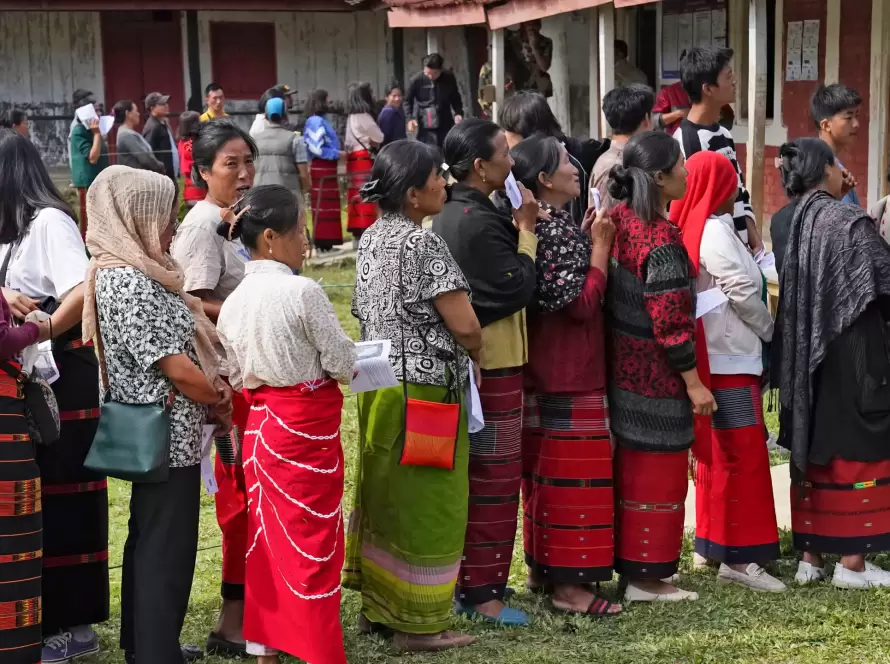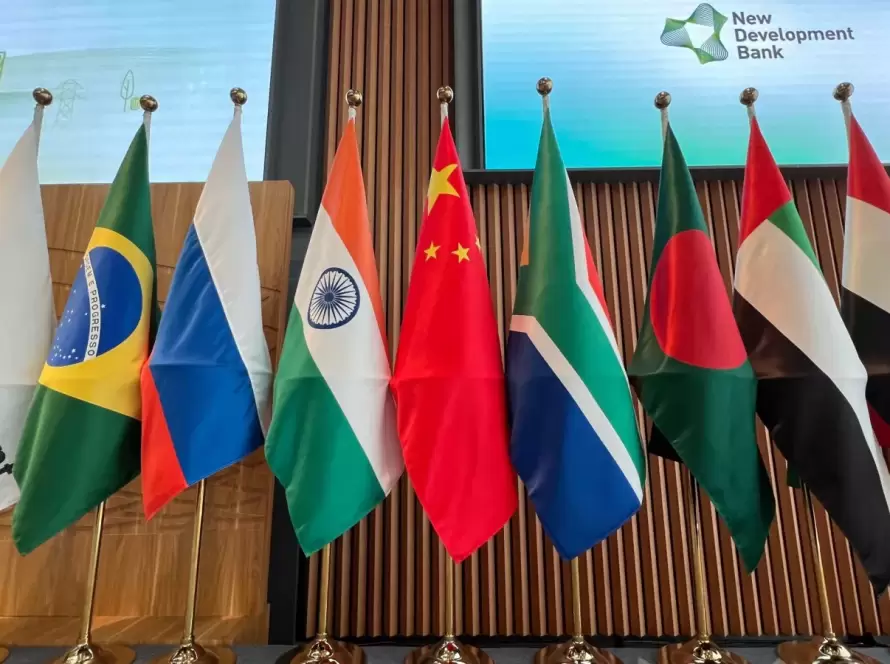By Lakmali Mananperi

India’s Foreign Secretary Harsh V Shringla who was on an official visit to Sri Lanka last week has reiterated the obligations of the Sri Lankan government under the 13th Amendment to the Constitution. This provisions devolution of powers and is an indication to hold Provincial Council elections at the earliest.
The idea of devolving powers to Provincial Councils was never a homegrown policy. It was introduced through the Indo-Lanka Agreement commonly known as the Indo-Lanka Accord signed by then Prime Minister of India, Rajiv Gandhi, and the President of Sri Lanka, J. R. Jayewardene, on 29th July 1987 in Colombo. The new settlement was integrated to the local system by way of the Thirteenth Amendment to the Constitution and the Provincial Councils Act, No. 42 of 1987 and other enabling legislations that followed.
The idea of Federalism is acknowledged by Article 1 of the Indian Constitution stating that “Bharat shall be a Union of States”. The higher level of decentralization arrangement which distributes legislative, executive and judicial powers territorially considering each constituent a state with its own internal system of local government has worked well in a heterogeneous society like India. This has enabled regional aspirations and national interests to interplay on a common stage. Adopting similar devolution of powers has been argued to carry the potential of destroying the basic unitary structure of the Sri Lankan Constitution. Therefore, an intermediate position between the unitary and federal poles was established by the Provincial Council system.
India’s interest in power devolution is seen as one of the ulterior solutions to enable ethnic solidarity among the Sinhalese majority and Tamil minority of Sri Lanka. Striking a balance between the opposing visions of the two groups – while the former seeks hegemony and the latter insists on equality, recognition and coexistence; has been an arduous task for successive governments of Sri Lanka over the 34 years, and one that India has paid close attention to from its inception. The close cultural, religious and linguistic affinity between the Sri Lankan Tamils and South Indian Tamils and Tamil Nadu providing asylum to many Sri Lankan refugees from the North during the height of the war has made India more sensitive towards the ‘Sri Lankan Tamil cause’.
The issue crept into India’s foreign policy formulation process with the influence of Tamil parties whose support was required by the Central Government from the mid-80s to form national coalitions. The coalitional arrangement based on federal and multiparty settings have created a locked-in alliance between national parties and strong regional parties. In such context, the Centre cannot totally ignore the sentiments of the Periphery to secure political support of the Tamil parties in national coalitions and to calm protests and pressures from the State of Tamil Nadu. Thereby, the preferences of Tamil Nadu over the ‘Sri Lankan Tamil Cause’ are often resonated through the Centre via its external relations with Sri Lanka.
Known as linkage politics; a more obvious situation within such a coalition system, one negotiation influences or determines the process or outcome for another negotiation. The Centre, as the chief negotiator sits with two-tables; bargaining with domestic lobbies and international actors, trying to strike a balance between the two. It is the exact challenge which exists within the triangular relationship between the Central Government of India-Sri Lanka and the State of Tamil Nadu.
The regional representation in the Centre is not the only critical factor which determines the dynamics of India-Sri Lanka relations. Sri Lanka’s foreign policy standards also have had an impact over India’s stance on Sri Lanka. For instance, Sri Lankan’s close economic and financial ties with China, especially the two controversial projects: the Colombo Port City and the investment in Hambantota Port were sensitive matters to India on account of geo-politics and regional security. Hence, the slow progress in the reconciliation process and the implementation of the 13th amendment in full – for a more participatory system of governance, made India adopt a reserved attitude towards Sri Lanka. For example, India’s interventionist approach in the vote to condemn Sri Lanka over the U.S. sponsored UNHCR resolution in 2012 and 2013 at the UNHRC. This was in contradiction with India’s customary practice on such matters – which was to oppose country specific resolutions that will interfere with the internal affairs of a sovereign State. There were further repercussions for Sri Lanka such as the decision of Prime Minister Manmohan Singh to skip the Commonwealth Heads of Government Meeting (CHOGM) which was held in Sri Lanka in 2013 and India’s obstinate stance on the fishermen issues.
Therefore, Sri Lanka is vested with the burden to balance China and India. Sri Lanka’s ‘neutral foreign policy’ propounded by President Gotabaya Rajapaksa, to avoid any affiliations to a particular country or power bloc, is assumed to work in favor of the country. However, neutrality is a concept relative in nature and conflicts with the idea of ‘neighborhood first’ policy – often reiterated by the government of India. The latter has been accommodated on certain occasions as an exception to the country’s standard foreign policy, when the Sri Lankan President advises to expedite the provincial council election over the concerns of the immediate neighbor.
India’s special status in Sri Lankan foreign policy and the ceasing of tension between the Center-State relations in India – with the BJP government wining majority in their second tenure, has persuaded the Central government of India to tone down its rhetoric against Sri Lanka. The recent diplomatic ties between the two countries are cordially progressing towards one direction. However, full and complete implementation of the 13th Amendment to the Sri Lankan Constitution will always be a central concern of India.
(The Writer is an Alumna of the Open University of Sri Lanka and holds a Master’s Degree in Law from University of Lucknow, India. Her research interests are in the areas of Environmental law, Constitutional Law and Human Rights. She is reachable via lakmali.manamperi3@gmail.com.)
***************
Disclaimer – Factum is a Sri Lanka based think-tank providing international relations analysis and public diplomacy consultancies in Sri Lanka and Asia. Visit – www.Factum.LK


